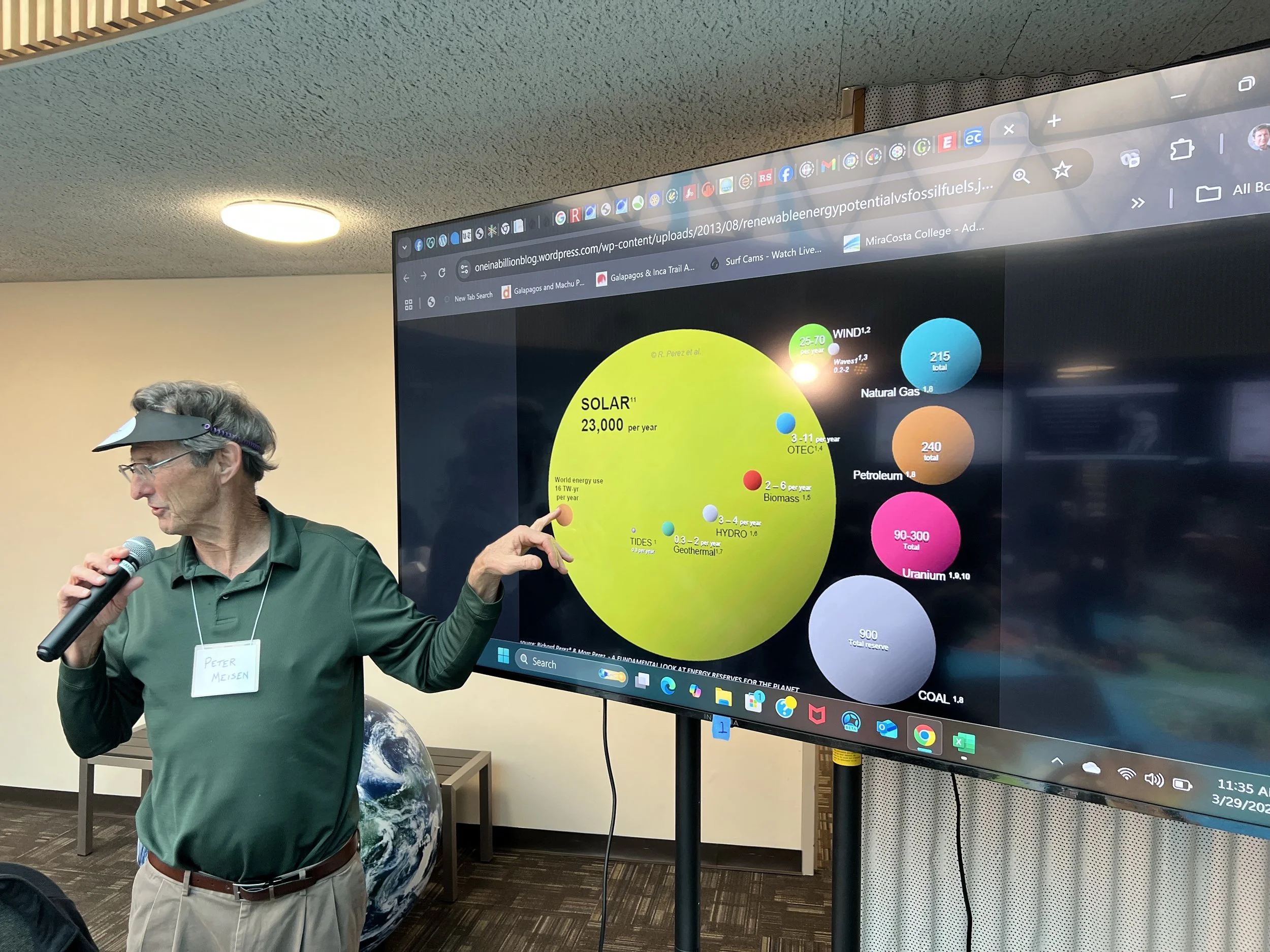The Fuller Dome as Extension of Your Classroom:
Environmental Sciences - Buckminster Fuller's vision and concepts, especially his focus on comprehensive design, resource efficiency, and interconnected systems, are very relevant to environmental sciences. His ideas support innovative solutions for environmental challenges and the creation of a more sustainable future.
Focus on Sustainability and Resource Management:
Fuller was a pioneer of sustainable design and an early environmental activist. His work emphasized responsible resource management and using technology to benefit all of humanity without depleting resources.
This aligns with the core mission of environmental science colleges to promote sustainability and address environmental challenges like climate change, pollution, and resource depletion.
Emphasis on "Doing More with Less" (Ephemeralization):
Fuller coined the term "ephemeralization," which essentially means achieving greater functionality with minimal resource use. This concept directly relates to sustainable design and resource conservation, central to environmental science studies.
Modern cell phones are a great example of this principle, offering more functionality with less material compared to earlier models.
Systems Thinking and Interconnectedness:
Fuller was one of the first thinkers to promote a systemic worldview, recognizing the interconnectedness of social, economic, and environmental factors.
Environmental science colleges emphasize this holistic approach, acknowledging that environmental issues are often interwoven with social and economic issues.
Innovative Design for Environmental Solutions:
Fuller's inventions like the geodesic dome and the Dymaxion house demonstrate his innovative approach to creating practical, resource-efficient designs.
Environmental science programs often encourage design-thinking and the development of creative solutions to environmental problems, including sustainable architecture and infrastructure.
Renewable Energy and Ecological Consciousness:
Fuller was a strong advocate for transitioning to renewable energy sources, documenting that sufficient resources and technology exist to eliminate reliance on fossil fuels.
Colleges of Environmental Sciences are deeply invested in studying and developing sustainable energy solutions, such as solar and wind power.

